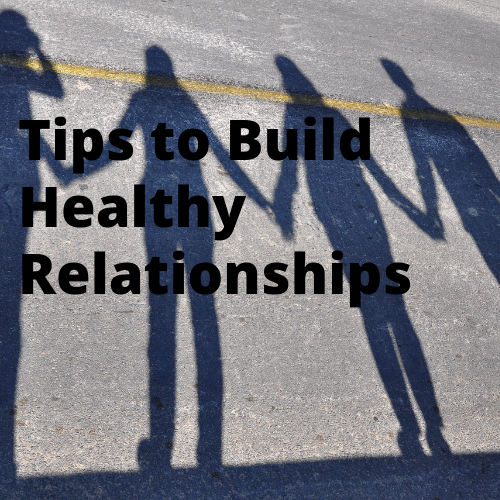
Tips to Build Healthy Relationships
How do you build healthy relationships?
How can you build healthy relationships while in recovery? Sometimes it can seem hard, especially in early recovery to build healthy relationships. However, they’re the cornerstone of support whether it’s a friendship or an intimate relationship.
Create healthy boundaries
A boundary is a guideline that defines a permissible way for others to treat us. When a person is using substances, they very likely have few or no boundaries at all. Many with substance use disorders are unable to tell their friends “no”; leading them to ignore their own personal values and beliefs. This is common especially if those same friends are ones they’ve actively used with.
This can make it difficult to establish boundaries if one person is in recovery and their old friends still use. Everyone in recovery must re-examine just about every piece of their life, including those they surround themselves with. Its human nature to want relationships and acceptance from friends but when you remove substance use from the relationship, especially from only one side – the outcome can be very unexpected.
For example, the person in recovery may now value honesty while their old friend who is still using frequently lies. It can be hard to understand why or relate. Their mindset is focused on the next drink, the next pill or next high. To them those are the priorities, not necessarily respect and reciprocation. Individuals who are in active addiction can be unstable and unpredictable. They may lie and/or steal to feed their disorder.
Empathize
Empathy is when you put yourself in someone else’s shoes and imagine the situation from their point of view and emotions. An example would be when you hear someone complain about the traffic on the way to work. You can say, “Yes, traffic is rough.” It makes them feel like you hear what they said and that you can empathize with their situation. The same goes for positive feelings. Your friend may tell you when they’re excited for their birthday. Show that you are excited, too, and they will be more likely to reciprocate those positive feelings later.
Trust and be trustworthy
Honesty and trust go hand in hand. Meaning, if you want honesty you must be honest. The more open and honest you are, trust will build. As you spend more time with this relationship and they have shown they are honest, have faith that they will do the right thing. People do make mistakes at times, but trust that the other person will learn from their mistakes and try to grow. If you are weary about someone’s actions, find a constructive way to express your feelings to them without aggression or blame. Show them that you care and want the best for them. When you have their trust, you can offer to help. However, remember the adage that you can lead a horse to water, but you can’t make it drink.
Try not to project
Sometimes when we interact with other people, we think that comments or actions are directed at our own insecurities. While this may be true in abusive relationships, it’s not the case in most relationships. In a trustworthy relationship you can ask the other person what they meant by what they said and explain how it made you feel. Use non-defensive body language and tone to show that you truly want to understand their point-of-view. Non-defensive listening is a skill that creates a safer environment for relationship-building.
Do you need further help to build healthy relationships?
Lifeline Connections offers an integrated, holistic approach that includes therapy and case management. In addition, our doctors specialize in the treatment of co-occurring mental health and substance use disorders.
Above all, they can work to design a custom plan for wellness. Additionally, secure treatment is over the phone or computer with telehealth, providing coping skills for grief, loss, depression and anxiety. In short, they will work with you one-on-one to get you feeling better. So, contact us and reclaim your life.
